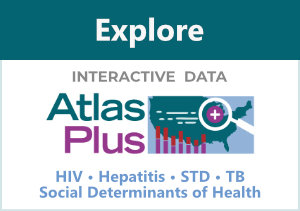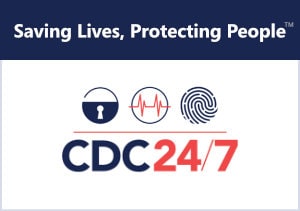STD Awareness Week, April 12-18, 2020
Dear Colleagues,
February 3, 2020
Today, we have exciting news to share about our annual STD awareness observance. We are ecstatic to kick off the new decade by inviting you to observe STD Awareness Week with us from April 12-18, 2020.
As you may know, April has historically served as STD Awareness Month. The decision to move to a week was not made lightly but rather driven by consideration of our past efforts and audience engagement here at CDC and in speaking with colleagues in the field. Furthermore, in being strategic of health observances, we selected the second full week of April for STD awareness as the first week is National Public Health Week and the third week is National Infertility Awareness Week. We expect this change will amplify our prevention messaging over the week, rather than diffused across a month, increasing our collective impact for STD awareness in the nation.
While the timing is shifting, our goals for the new STD Awareness Week remain the same: raise awareness about STDs and how they impact our lives; ensure people have the tools and knowledge to prevent, test for, and timely treat STDs; and break down the STD-related barriers of stigma, fear, and discrimination. While we’re excited for this change, we know transitions come with challenges and recognize that this first year we’ll encounter some hiccups. We believe, though, that while STD Awareness Week provides us a yearly opportunity to unify our voices, it certainly isn’t the only time to share our messages or hold testing events. STDs impact people daily not just during a certain week or month so let’s encourage prevention and testing year-round!
Because local prevention needs vary with the communities we serve, CDC will again provide four diverse campaigns to choose from with different prevention focuses and audiences this year. We will update you by mid-March with more specifics on STD Awareness Week materials.
- Get Yourself Tested (GYT) – Encourages young people to get tested and treated for STDs and HIV
- Talk. Test. Treat. – Focuses on three simple actions individuals and healthcare providers can take to protect their health/their patient’s health: Talk, Test, Treat
- Syphilis Strikes Back – Highlights the resurgence of syphilis and the specific threat against gay and bisexual men, pregnant women, and newborn babies
- Treat Me Right – Underscores the need for strong patient-provider relationships to overcome the rising STD burden
After decades of service in our field, what keeps me engaged and excited year after year is one constant: change. Our field has an incredible history of adaptability and flexibility as the times change. I see this as a new era for raising our voices about STD prevention and control. Here’s to a great STD Awareness Week this April and thank you for your unwavering commitment to STD prevention!
Best Regards,
/Gail Bolan/
Gail Bolan, MD
Director, Division of STD Prevention
National Center for HIV/AIDS, Viral Hepatitis, STD, and TB Prevention
Centers for Disease Control and Prevention
Stay in touch with the Division of STD Prevention by following @CDCSTD on Twitter and by liking CDC STD on Facebook.


